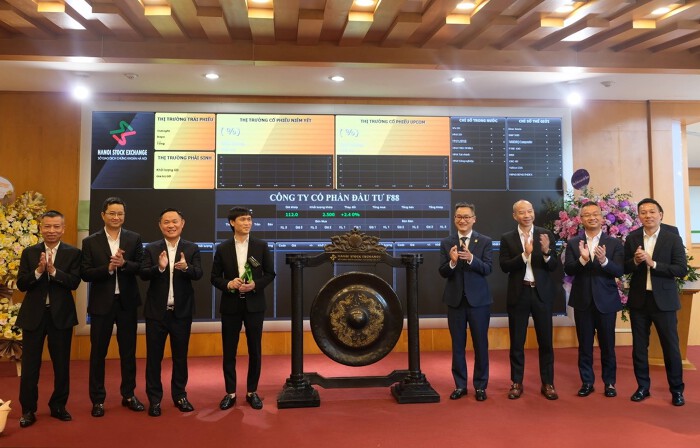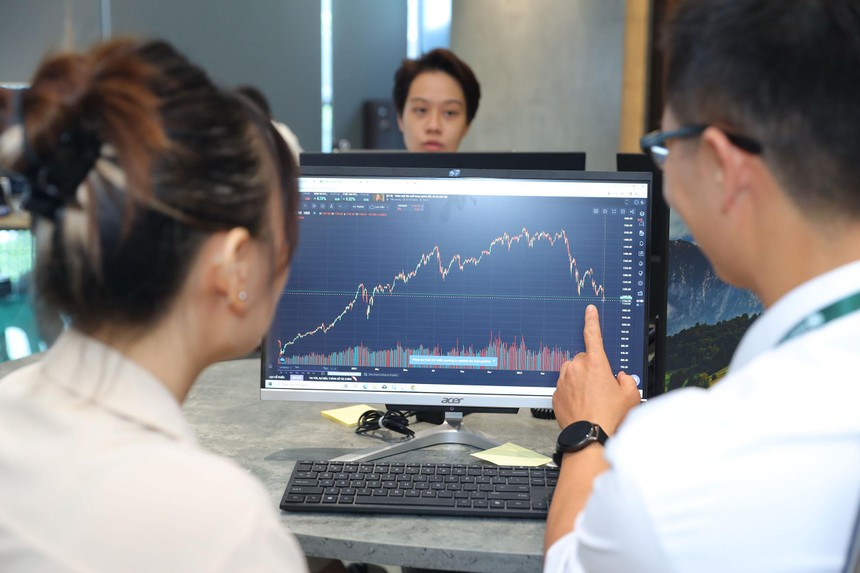Vietnam Ranks Second In Southeast Asia For AI Startups
Vietnam has emerged as a major player in Southeast Asia’s generative AI (GenAI) scene, ranking second in the region with 27% of GenAI startups, trailing only Singapore’s 44% share, according to the GenAI Fund ASEAN 2024 report.
These startups are making strides in business solutions, healthcare, and financial services, signaling strong innovation momentum. However, challenges remain: enterprise adoption is slow, startups lack access to real-world data for pilots and proof-of-concepts (PoCs), product–market fit is still uneven, and they face tough competition from SaaS vendors and global tech giants.

Addressing this gap, the GenAI Open Innovation Vietnam 2025 program brought together 233 local startups and 11 major enterprises, including AWS and Renova Cloud, to foster direct collaboration. The program resulted in 88 startup–enterprise matches, with 43.8% advancing to PoC discussions, a strong indicator of solution–market alignment. Beyond providing capital, the program acts as a strategic connector standardizing PoC processes, preparing startups for deployment, and coordinating with cloud providers to reduce implementation risks. Following its success in Vietnam, the initiative will expand to Malaysia, Indonesia, and Japan to build a regional GenAI collaboration and investment platform.
Vietnam’s GenAI sector is growing quickly, but scaling will depend on converting promising pilots into real-world deployments. Standardizing processes and connecting startups directly with enterprise problem statements could accelerate commercialization and help close the gap with Singapore, not by boosting the sheer number of startups, but by ensuring more of them make it to production. If this model can scale across the region, Vietnam could cement its position as a hub for practical, enterprise-ready AI solutions.
F88 Sets Record As Vietnam’s Most Expensive Stock
On August 8, 2025, F88 Investment JSC (F88) made a striking debut on the UPCoM market, opening at 634,900 VND ($24.95) per share before quickly hitting the 40% ceiling at 888,800 VND ($34.93). This surge crowned F88 as the highest-priced stock in Vietnam by per-share value, pushing its market capitalization to about 7,346 billion VND ($288.78 million). The milestone underscores growing investor confidence in Vietnam’s consumer finance sector, particularly in non-traditional lending.

From its beginnings as a small pawnshop in Hanoi, F88 has grown into a nationwide network of 888 transaction offices, serving millions who previously lacked access to mainstream financial services. While pawnbroking remains its core business, F88 has expanded into broader consumer finance, including insurance.
In the first half of 2025, the company posted 1,744 billion VND (approx. $68.54 million) in revenue, up 30% year-on-year, with pre-tax profit reaching 321 billion VND (approx. $12.62 million). Notably, total loan disbursements in Q2 climbed to nearly 3,900 billion VND (approx. $153.28 million), marking the highest in three years. Foreign investors now hold over 57% of the company, led by Mekong Capital, Granite Oak, and the Oman Investment Authority.
F88’s record-breaking entry signals the maturing appeal of consumer finance in Vietnam’s capital markets and could inspire similar firms to pursue UPCoM listings. By formalizing and scaling a once-informal sector, F88 is reshaping investor perceptions and showing that high-growth, high-valuation debuts are possible outside traditional industries. The challenge ahead will be sustaining this momentum through disciplined risk management, consistent profitability, and expansion without losing its competitive edge.
Vietnam To Pilot Cryptocurrency Exchange In Late 2025
Vietnam is preparing to launch its first cryptocurrency exchange pilot in August or September 2025, marking a notable step toward modernizing the country’s capital markets. The plan, proposed by the Ministry of Finance and awaiting final approval from the Politburo, takes a cautious but forward-looking approach.
Drawing from international precedents and local trading realities, the ministry aims to balance innovation with safe development, setting clear standards around transparency, financial strength, technology, and operational expertise. Private sector participation will be encouraged, with the pilot involving more than one but fewer than ten exchanges for easier evaluation.

The regulatory framework for the pilot was outlined in a draft resolution from March 2025, which formalized coordination between the Finance Ministry, Public Security Ministry, and the State Bank. The program’s objectives go beyond simply testing infrastructure; it aims to stimulate market activity while mitigating financial risks, ensuring market stability in a rapidly expanding cryptocurrency space. By limiting scope in the initial phase, regulators can closely monitor performance and adapt rules before broader rollout.
If successfully implemented, the cryptocurrency exchange pilot could open new channels of liquidity, attract foreign investment, and strengthen Vietnam’s position as a regional player in digital finance. By taking a measured yet progressive approach, the country is testing frameworks that could serve as a model for balancing investor protection with regulatory clarity - critical factors for fostering trust in a market still viewed with caution. The success of this pilot could determine how quickly Vietnam can embrace and scale cryptocurrency trading in the years ahead.
Vietnam’s Stock Market Booms, But Where Are The Tech Startups?
Vietnam’s stock market is on a historic run, with daily turnover surpassing US$1.5 billion and indexes climbing over 20% in VND terms this year. Yet beneath the surge lies a puzzling gap: technology companies make up less than 5% of the country’s roughly 685 listed firms.
For early-stage tech startups, stringent listing rules, including two consecutive years of pre-tax profit, no accumulated losses, and a minimum 5% return on equity, remain a major roadblock, especially for businesses still focused on growth over profitability. Additional hurdles include caps on foreign ownership, restrictive daily trading limits that deter large-scale investors, and the perception that UPCoM, Vietnam’s secondary exchange, undervalues companies and lacks an efficient path to main-board listing.

Industry experts suggest that aligning Vietnam’s IPO process with global standards could unlock the pipeline for tech listings. This means allowing public offerings and listings to happen simultaneously, permitting dual-class shares so founders can retain control, and streamlining domestic listing procedures to make them more attractive than setting up foreign entities abroad. Without such reforms, many Vietnamese startups may continue to seek capital and recognition in overseas markets, bypassing local exchanges altogether.
Vietnam now stands at a pivotal moment. Ongoing efforts to merge the Hanoi and Ho Chi Minh City stock exchanges, modernize trading systems, and ease requirements for foreign investors could help transform the market into a magnet for global capital. If executed well, these changes would not only strengthen market liquidity but also keep the next generation of high-growth tech companies rooted at home, fueling innovation and economic growth without losing talent to foreign listings.
Vietnam Launches National Startup Incubator To Boost Tech Ventures
Vietnam has officially launched the National Startup Incubator, a multi-sector, nationwide model designed to provide comprehensive support for technology startups. Introduced on August 2 during GM Vietnam 2025 Blockchain Week in Hanoi by the Global Vietnamese Startup, Innovation, and Digital Transformation Network (HUB Network), the initiative aims to shift startup development from fragmented, spontaneous efforts to a structured ecosystem backed by policy, technology, and resources.
The program offers a full-stack support pathway from selection and training to deep mentorship, market connections, and access to capital, targeting tech ventures with long-term growth potential. Key partners include SotaTek for infrastructure and AI/blockchain/software solutions, and UPGen for workspace and operations.

A core component of the initiative is the HUB Challenge, a competitive platform that identifies and trains startups in sectors such as fintech, high-tech agriculture, green technology, and artificial intelligence. The campaign emphasizes rigorous screening and hands-on training, preparing selected teams for intensive incubation. Beyond domestic growth, HUB Network is also expanding internationally, with a new presence in the UAE to help Vietnamese startups enter the Middle East’s innovation scene, attract foreign investment, and facilitate technology transfer.
The National Startup Incubator marks a milestone for Vietnam’s innovation landscape by replacing scattered efforts with a coordinated, sustainable strategy. With strong partnerships, a practical focus, and a vision for global expansion, the program could significantly improve the success rate of Vietnamese tech ventures. By aligning local capabilities with international opportunities, it positions Vietnam not just as a startup hub in the region, but as a competitive player on the global stage.
Genesia Ventures is an early-stage venture capital firm operating in Japan and Southeast Asia, with a strong belief in the long-term potential of Vietnam’s digital economy. Beyond providing capital, the fund actively supports startups through strategic guidance and connections to a broader regional network.
